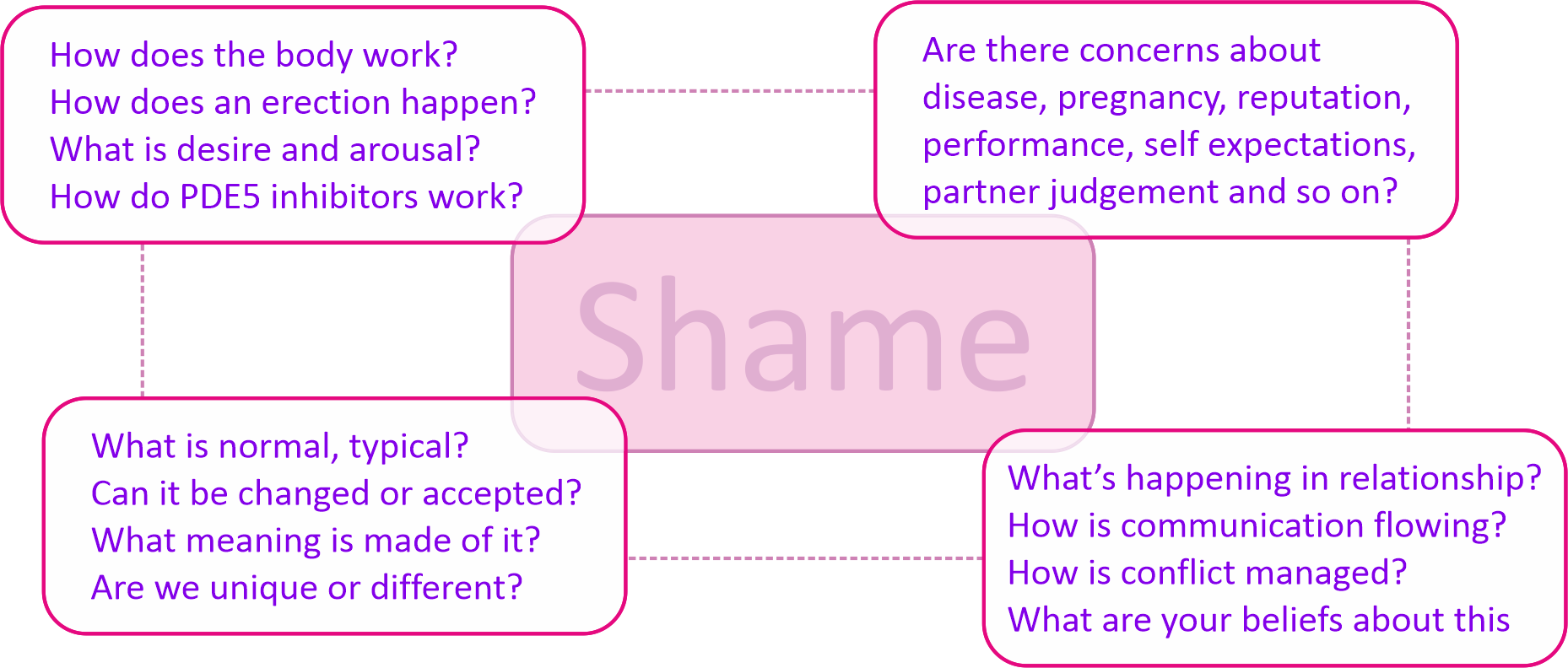Unreliable Erection
What is ‘Unreliable Erection’?
Unreliable erection is sometimes called Erectile Dysfunction (ED) in the classical medical tradition. Unreliable erection in this context is when a person with a penis is unable to obtain or sustain an erection of suitable rigidity to perform the type of sex they are interested in, and such inability is causing them distress.
What must be established first
There are many reasons why an erection may be unreliable. These include the effects of aging, medical conditions, implications of surgery or trauma, hormone imbalance, obesity, drugs, anxiety, stress and relationship problems. It is important to rule out any medical reasons before further psychosexual investigations take place because unreliable erection can be an early indication of heart and blood circulation problems. So if you have not spoken to your GP about the problem yet, you will be encouraged to do so. Your doctor will be skilled and experienced in the medical aspects and should put you at ease to talk about it. Once your GP has ruled out any underlying medical issues we can get to work.
Understanding the Context
Although this aspect is usually covered during your medical enquiry it is important to check if you are having satisfactory nocturnal/morning erections. This is a normal part of your body’s maintenance schedule. Likewise, if you masturbate, is your erection satisfactory? This can frame the relevance of the psychosexual therapy as it clarifies if the problem is context dependent. We will work through when the problem occurs and how long it has been happening. Are other related problems happening?
Do you use porn and what is your masturbation style? Do you smoke, drink, use recreational drugs or have lifestyle behaviours that can impact your erection? Has anything affected your erections in the past? How do you feel about your partner(s) if relevant?
Understanding your perspective
We need to know what aspect of the problem is causing you the most distress. What are your underlying beliefs that inform this distress. If some ‘shoulds’ emerge there may be opportunities for challenge, re-framing and psycho-education. We are complex beings living in complex times and we can usually benefit from some self-compassion.

Exercises
If appropriate there are a number of exercises that can help you gain confidence, understanding of your unique arousal style and mastery of your habitual thought processes.

